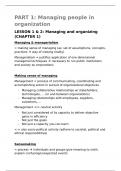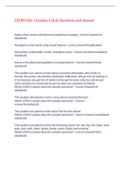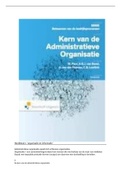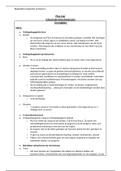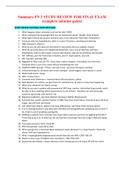Resume
Summary Introduction to Management and Organising 24/25
- Établissement
- Universiteit Antwerpen (UA)
Complete summary of introduction to management and organising from the year 24/25 for 2nd bachelor Handelsingenieur, TEW and SEW from prof Steffi Weill. The summary includes all lessons from the syllabus.
[Montrer plus]
